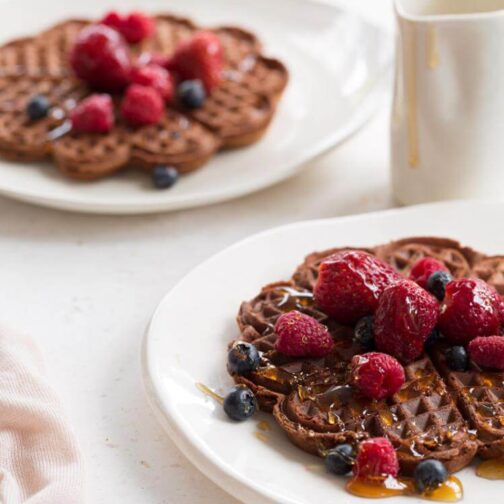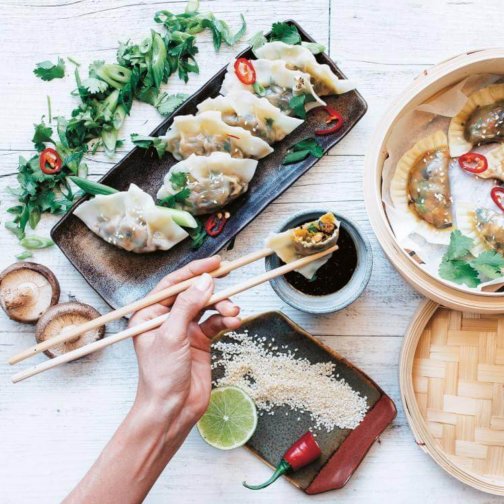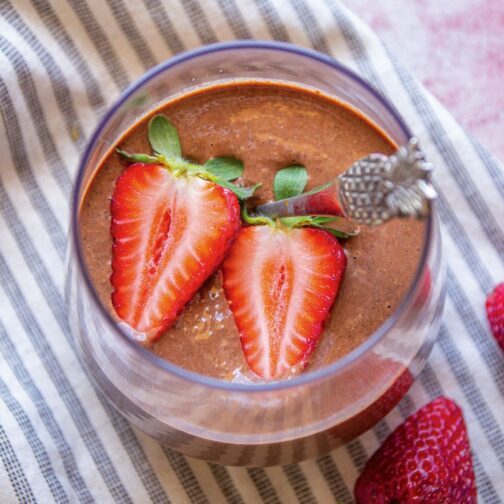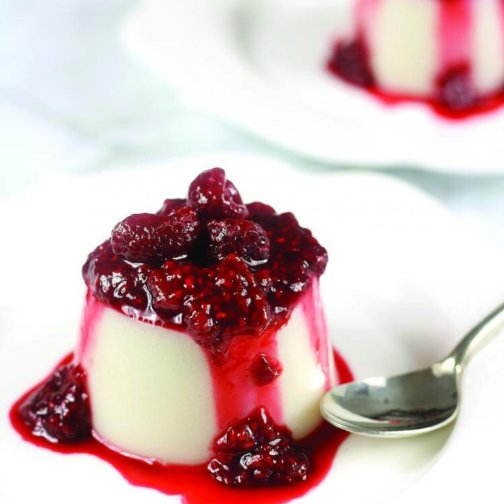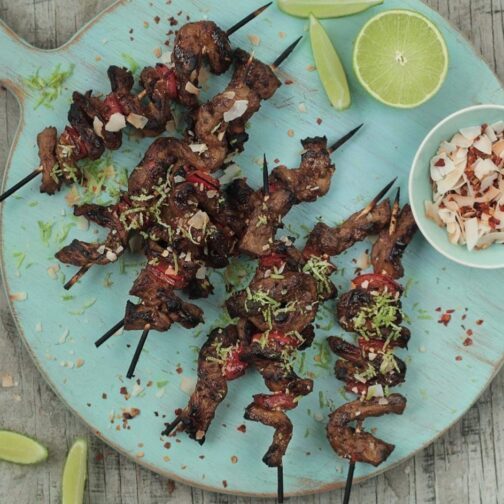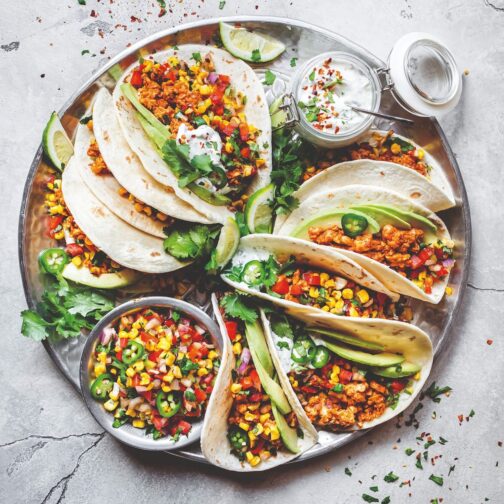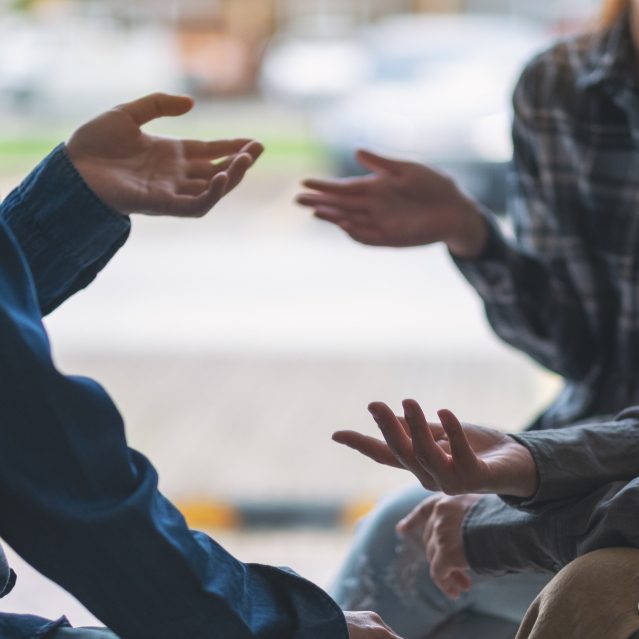
Are you ready for the quarrelsome questions you’ll get as a vegan? Handled well, they can be calm conversations that create ripples of change.
When choosing a vegan lifestyle, you will most likely encounter unsolicited opinions and even criticisms from others. The trick is to always answer calmly and with respect. Getting into heated arguments is rarely a recipe for success. In a calm conversation, often something you say will stick with someone, tickle their brain, and if they hear or read it enough times from enough people, they might make a change too. And you may never even know that you contributed to that change.
I’ve noted down some of the most common questions and answers to help you feel better prepared in the face of critique.
#1 It’s not healthy. Where will you get your iron, protein, calcium, vitamin A, B, C… etcetera? You’re going to get malnutrition.
A vegan diet can be very healthy. I have researched this subject and know I can get everything I need from a balanced diet of grains, legumes, and veggies. The only supplement required is vitamin B12; other than that, it’s all good. There is plenty of credible information on plant-based nutrition. In fact, did you know that some of the top athletes in the world are vegan?
#2 How do you know that plants don’t feel pain too? Can you prove it?
Veggies are not sentient, and that’s science talking, not me. Vegetables cannot and do not suffer like animals. On the other hand, have you heard of the Cambridge Declaration on Consciousness? It states that the top scientists in the world agree animals have experience and awareness just like us, and most people recognise this fact. What is driving me to be vegan is my desire to play no part in the suffering of animals. If I can live a healthy, happy life without causing pain to animals, I want to live that way.
#3 Humans have eaten meat since the beginning of time. We’re part of the food chain. Do you want lions to stop eating gazelles and go vegan too?
Most people, me included, are no longer living as hunter gatherers. I know that I can have a healthy diet by being vegan and live according to my values, so that’s what I’m doing. I’m not going to interfere with a lion’s diet – they’ve got to do what they’ve got to do.
#4 We have canine teeth – we’re carnivores. And not only that, it’s part of our evolution and how we got such big brains.
The shape of our teeth does point to the fact (pun intended) that we are naturally omnivorous. But the truth of the matter is, with access to a wide range of food and produce, we can now live healthy lives without eating animal products. Our big brains are now allowing us to evolve into kinder Homo sapiens. Isn’t that amazing?
#5 If we stopped eating animals, what would happen to all the animals that are alive today? There’d be too many and not enough space for them.
If we didn’t eat animals, we would stop breeding animals. This would be a slow process of decreasing the billions of animals we grow and slaughter every year. If, by some Disneyesque magic spell, the entire world stopped eating animals overnight, the animals who are currently alive today could simply live out the span of their natural lives.
#6 If we didn’t eat animals, we wouldn’t breed animals, and then they wouldn’t exist at all. We’d have no more pigs or cows or chickens. You’re depriving animals of life.
If we stopped breeding animals for food, it is likely that the current breeds of pigs, cows, and chickens – who are genetically selected for rapid growth and maximum yield of milk, eggs, and meat – would slowly disappear. But isn’t it better they don’t exist than having to live their entire lives in misery, pain, and suffering?
#7 Being vegan is actually worse for animals. Have you considered all the ants and bugs killed when we grow crops? Way more than the other animals.
When people talk about animals killed while farming vegetables, most are estimates of insects. And while I care about insects too, many vegans follow a utilitarian approach. Sadly, farmers can accidentally kill wild birds and mammals with tractors, ploughs, and pesticides, either by accident or on purpose in order to protect their crops. So, let’s also encourage the growing movement of organic, wildlife-friendly, and predator-friendly farming.*
#8 My aunt/cousin/friend once tried going vegan. And she/he/they got sick with fatigue/ulcers/rash [insert any sickness]. It’s very dangerous.
I’m sorry to hear about your aunt/cousin/friend. I hope they’re okay now. It can sometimes be tricky to make sure we eat a balanced vegan diet, as it can be with any diet. The Western diet is full of temptations – excess sugar, trans fats, additives, and high salt, causing worldwide epidemics of obesity, heart disease, and type 2 diabetes. We all need to be careful. That’s why I’m educating myself about nutrition.
#9 What a first world problem. What about starving children? Do you want them to stop eating the meagre food they have? Vegans are spoilt, privileged, ungrateful … and so on.
I’m also concerned about children living in poverty. Research shows a vegan diet can actually help address food inequality. There’s a UN report explaining how a global shift towards a vegan diet is vital to save the world from hunger, poverty, and the worst impacts of climate change. But ultimately, this is a decision I’m making for myself, because I believe it’s the kindest way that I can live.
#10 If you were stranded on a desert island (or some other solely carnivorous galaxy), would you eat meat then?
If I were stranded on a desert island and starving, I may even eat another human to survive. Have you seen that film about the plane crash where they all become cannibals? Crazy, right? Where would you draw the line?
#11 Why do you care about animals when there are so many other problems in the world – poverty, war, slavery, racism, sexism, inequality … animals should be the least of our worries.
This is called ‘whataboutism’ – a popular technique to try to undermine an argument. For example: What about refugees? Or domestic violence? Caring about animals does not mean we don’t care about other issues. It’s not a zero-sum game. Quite the opposite – compassion breeds compassion.
Dr Ash Nayate, a vegan neuropsychologist, explains, “When we care about one social justice movement, we start caring about them all. Our empathy skills are like muscles; they get strengthened with use. So whether it’s sexism, racism, homophobia, or transphobia that we’re fighting… our brain is getting primed to care about all forms of oppression.”
#12 It’s free-range, grass-fed, cage-free – so it’s okay!
Although smaller scale farms may be able to implement ‘higher welfare’ practices, some cruel practices are inherent to modern animal farming in breeding, transporting, and slaughtering. This means there are still numerous animal-welfare issues with free-range or ‘humane’ farming.
***
This article is an edited extract from Vegan Living by Ondine Sherman, published by Pantera Press
* Nourish note: It’s also worth being aware that we could feed the world on a quarter of current agricultural land by growing plants for direct human consumption and letting grazing land rewild. So, if we want to save wildlife, going vegan is the best thing we can do!




